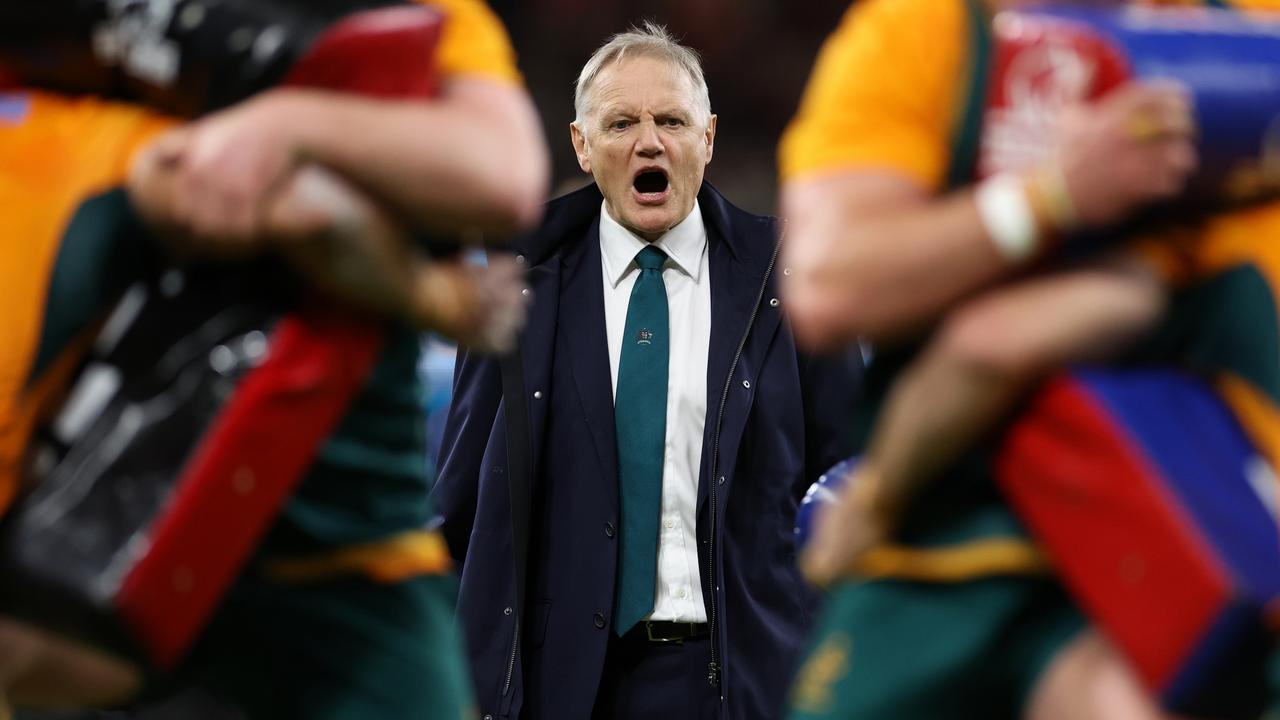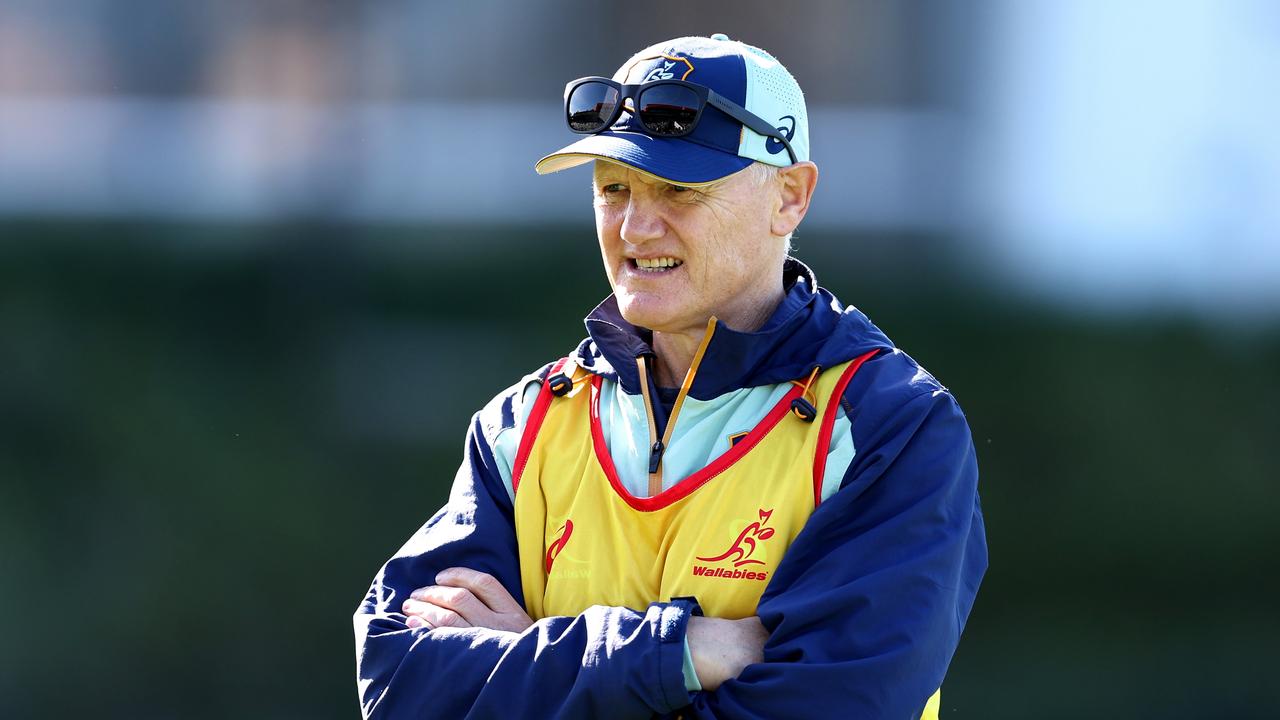How England under Eddie Jones sleepwalked into a 2019 Rugby World Cup final disaster
There was disbelief and tears after England beat the All Blacks in the 2019 Rugby World Cup semi-finals. But what happened before the final against South Africa was a mess, writes OWEN SLOT.
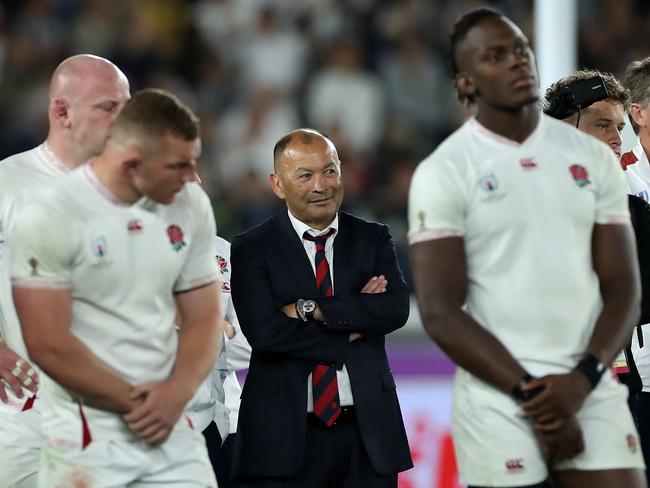
World Cup
Don't miss out on the headlines from World Cup. Followed categories will be added to My News.
Before Saturday comes and England start waging an uphill campaign for rugby’s world title, there is one nagging question: why is this not their title to defend?
Ever since those shattered England players slipped their runners-up medals from their weary necks after the World Cup final in Yokohama four years ago, the one massive unanswered question, that no one has ever put their finger on, is: how was it that they had managed to pull off one of the greatest-ever performances against New Zealand in their semi-final and then deliver one of the flattest-ever displays in the final against South Africa only seven days later, losing 32-12?
How do you go from such a high to such a low? In only one week? And on the occasion of the biggest game of your lives?
Here is something of an answer. It starts back at England’s Pennyhill Park training base in 2019 where there was a big banner in the gym with a projection of England’s route to the World Cup final. The projection had the All Blacks as the semi-final hurdle and the greatest volume of England’s prep work was devoted to that single game.
As one staff member from 2019 recalls: “It was like the boys were always building towards that game and it was the cup final.”
Those words could not have been more prescient because after the semi-final, when Steve Hansen, the defeated Kiwi coach, went into the England changing room to congratulate them, he said: “Look boys, make sure that wasn’t your cup final.”
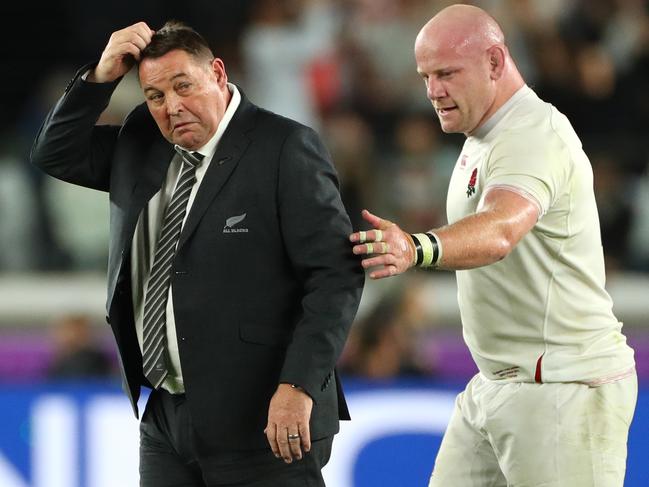
Yet in the changing room, emotions were so high that there were staff members crying, particularly some of the Australians on the staff for whom a victory over the All Blacks was both so rare and so valuable. Scott Wisemantel, the attack coach and as chilled an Aussie as you will find, had tears in his eyes.
“The players were shocked as well,” says the aforementioned staff member. “They hadn’t expected to play that well. We’d surprised ourselves. So with half the playing group, it felt like Hansen’s words just washed over, like they didn’t really hear what he said. Many of them thought that if we can beat New Zealand like that, we’ll be fine.”
Some of the players concede that they read too much into the semi-final performance. “Was it that we got to the final and expected it to happen?” Luke Cowan-Dickie, the hooker, asks. “It did feel like we’d beaten New Zealand and then maybe we thought we’d already done it – just needed to show up. In the back of my mind it was a no-brainer we were going to go and win.”
Yet if that’s where the players’ minds were heading, who was there to rein them back? The next major misjudgment barely gave them the chance.

The semi-final had been on the Saturday evening. On the Sunday evening, there was a staff planning meeting to structure the week’s preparations for the final. Some of the staff suggested that they should strip the week back; they said that the players needed to come down from the high before being built back up.
“Plus we had trained relatively hard in the knockout stages,” another staff member says. “In the quarters and semi-finals, probably too hard. If you train too hard during high-arousal games, then at some point it’s going to come back and bite you. Eddie [Jones] disagreed. His mantra was that the English need to keep going because they’ll get complacent.”
Eddie Jones’s attitude was steeped in his belief in tactical periodisation, where you train according to how you intend to play and you build your match tactics into the week’s training sessions.
This is the recollection of John Mitchell, a vastly experienced coach who was the England defence coach at the time: “The players gave us a lot in that semi but at the end of the day, Eddie will say that he owns the training methodology, no one else.”
Mitchell says that he also believes in tactical periodisation but only within limits – and he felt those limits had been reached. “I saw players that were flat,” he says. Then he asked himself the question: “Did we challenge Eddie hard enough in that area?
“That is a factor as assistant coaches. We possibly should have done. But ultimately we always knew that once the training methodology is decided, it’s non-negotiable.”
Could the players not have spoken up? In Jones’ regime, that wasn’t how it worked. Yet, with the benefit of hindsight, this is Cowan-Dickie’s view: “From any big game, you are still on a high a day or two afterwards. Whether you know that or you don’t, it does take a toll on you. Towards the middle of the week, you start burning out.”
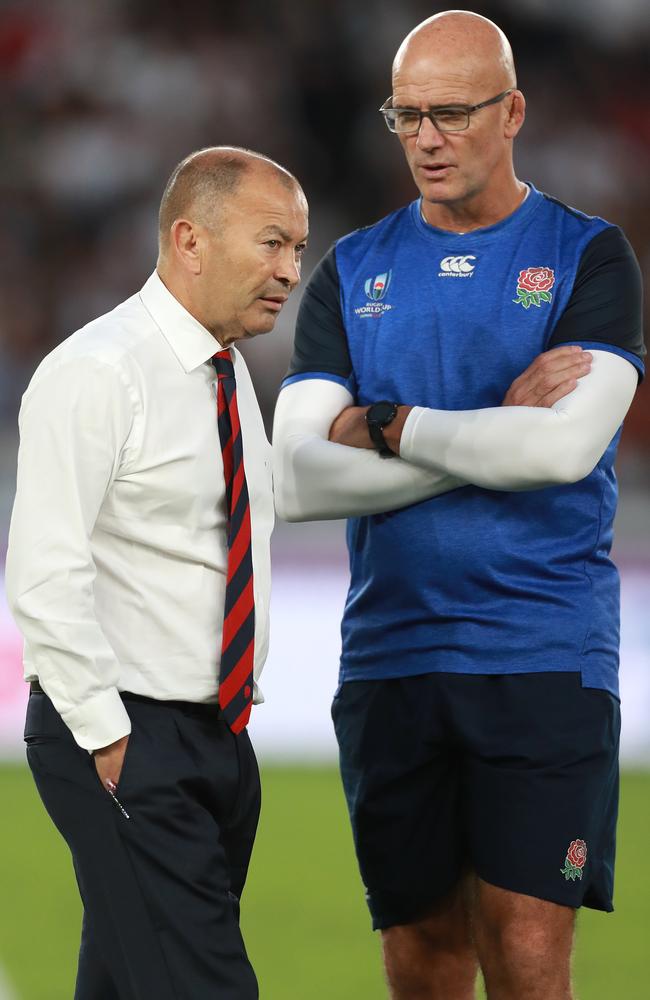
This is what Mitchell saw. His concern was less about the physical stamina remaining but the emotional side, and he saw his fears realised in the main training session of the week. Certain players are barometers for the group, one of whom is Owen Farrell, but he didn’t train because he was recovering from an injury from the semi-final. Another was Maro Itoje.
“Maro looked empty,” Mitchell says. “We made a mistake around the emotional tank; we stuck to the same training methodology and we didn’t refill the emotional tank.”
This is the view of another member of the training staff: “The way we trained that week, we were terrible – flat as a tack. From the adrenaline dump after the All Blacks, we didn’t come round again. The boys were sleepwalking. The mistake was that we just did a normal training week.
“Eddie believes the English are soft, that he needed to keep pushing the dial, that they need to keep getting whipped. That was his stupidity. We could have done what Warren Gatland [the Wales head coach] does at the end of a Lions series: nothing until Wednesday or Thursday. That’s what we should have done.”
The contrast to the way South Africa were preparing was stark. In his autobiography, Siya Kolisi, the Springboks’ captain, recalls “the amount of detail that we had to do on laptops” that week, because the coaches just “wanted us off our feet”.
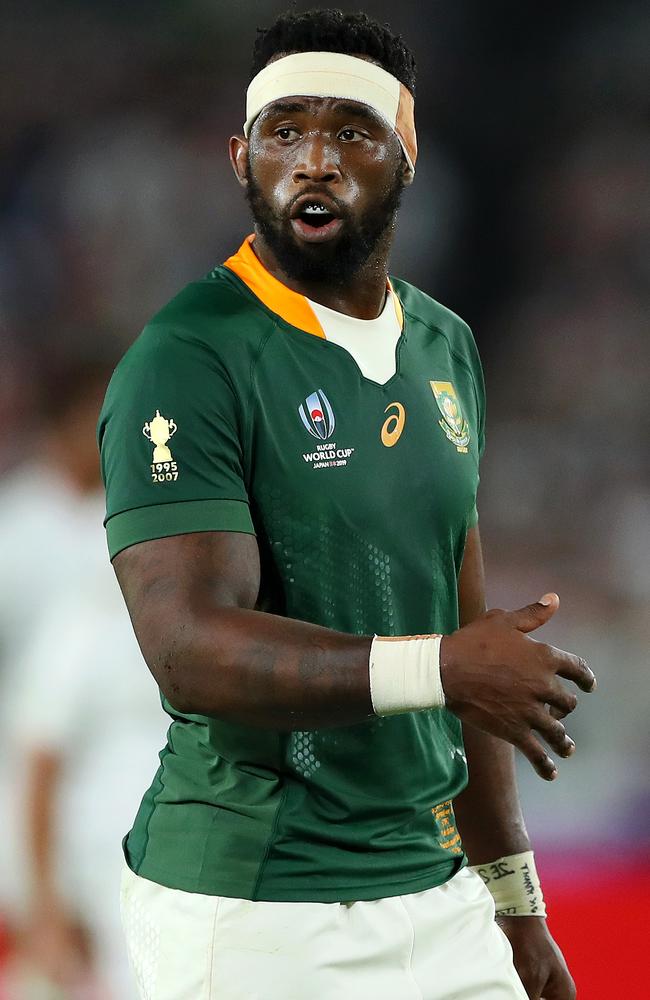
From the day of the final, November 2, two key issues are striking. One is the late arrival of the England bus. It is reasonable to put that down to bad luck (they had a police escort but bad traffic snared them anyway). They arrived 30 minutes later than they had expected, yet most players and coaches said that this did not bother them.
Kolisi, however, remembered meeting with Farrell and referee Jerome Garces for the coin toss: “Owen Farrell did not know which side he was at, which side was warming up, what team was he, A or B? I could see he was flustered and they arrived late at the stadium. You know when you have the feeling that there was no way they were going to beat us.”
The other was the meeting with Garces in the England changing room pre-match. This was the done thing at the time, the referee going to both changing rooms to discuss interpretations, concerns etc. What was certainly not regular behaviour was how aggressive Jones was to Garces.
This surprised a number of those in earshot. Jones criticised his refereeing in previous games. At this crucial point pre-game, you need to get the referee onside; intimidation is a strange tactic. It is not as if referees at this level are short on confidence or ego.
Again, this was the polar opposite to the Springbok approach. Kolisi writes: “We found out that Garces, for example, liked to be complimented on his fitness, so I’d make sure to say something about what good condition he was in and how he was keeping up with world-class athletes.”
Nevertheless, the England players still went into the game believing they were in a good place, even when the opening exchanges went so clearly against them. “We were sitting on the bench thinking: ‘We’ve started cold here, we’re gonna come back’,” Cowan-Dickie says.
Kolisi, however, writes of the quick realisation in the opposition Englishmen that their assumptions were misplaced: “They’re rattled, badly rattled … I see in their eyes that they can’t believe this is happening.”
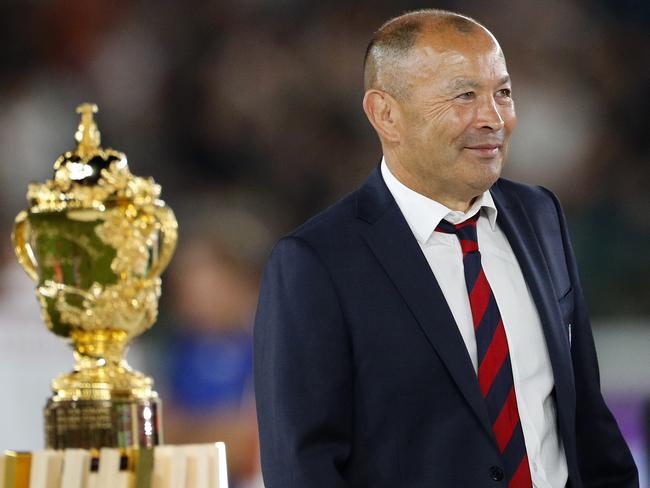
The game itself slid quickly away from England, so much so that the refereeing was probably irrelevant. Nevertheless, this is Mitchell’s recollection of that: “The referee was sanctioning quite a bit. In that first half, South Africa were constantly on an advantage. We were constantly under the pump.”
Two weeks later, in his new autobiography, Jones himself acknowledged his own mistakes in selection: that he should have picked Joe Marler, his scrummaging loose-head prop, rather than the all-court Mako Vunipola, and that he went for a lightweight playmaking backline which was an error against the Springboks. He has never, however, admitted the mistake in having poor old Dan Cole on the bench, a substitute tight-head who was never conditioned for the kind of role required of him after Kyle Sinckler’s second-minute concussion, or his scrum half policy which meant that Ben Spencer was on the bench having only just flown in from the UK.
This retelling of the 2019 story is in no way intended to discredit or underplay the Springboks’ mighty achievement. However, it is hard not to feel exactly how Mark Wilson feels. “You look back,” he says, “and go: what if?”
Wilson was another England substitute in that final. “If we’d lost,” he says, “and been able to say, ‘We played really well and still got beaten,’ that would sit with you better. But we weren’t quite firing on all cylinders. You want to turn up and give the best version of yourselves; that’s where we let ourselves down.”
“Even now,” Cowan-Dickie says, “I feel it was our time.”
Maybe it was; their eternal burden is that they will never know.
Originally published as How England under Eddie Jones sleepwalked into a 2019 Rugby World Cup final disaster



